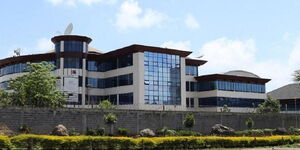Days before the first COVID-19 case was reported in Kenya on March 13, 2020, the government rolled out a toll-free number that would be used by citizens to report any symptoms associated with the disease.
Kenyans are now said to call the toll-free number not only to disclose Covid-19-related symptoms but also to complain about a range of issues including; job losses, relationships, unplanned pregnancies, self-esteem issues, Illuminati, abortion, court cases and housing.
The survey was conducted by the National Emergency Response Committee on Coronavirus on mental health and psychological support (MHPSS), who used the Ministry of Health's 719 and Red Cross toll-free number 1199.
Most of those who sought help through the Covid-19 toll-free numbers are those between 20 and 30 years, followed by those between 41 to 50 years.
On the other hand, those between 51-60 and 61-70, are considered to be the last to seek help on the list.
The survey, which was conducted between July 20 and August 5 indicated that Nairobi residents were the most regular callers, followed by Nakuru, Mombasa, Kisumu, Meru, Laikipia, Bungoma, Busia, Embu and Taita Taveta.
Narok, Lamu, Kilifi, Isiolo, Elgeyo Marakwet and Samburu are reported to have been least worried of the results.
The survey further disclosed that most health workers had not received counselling despite being on the fore fron in the fight against coronavirus.
Others expressed their displeasure in the way information was relayed to those who tested positive for the virus.
"Some results took a long time before they were relayed back to the patients," reads the report.
So far, the country has recorded 31,015 COVID-19 cases. Of this, 17,612 have recovered while 506 have passed on.
The pandemic has brought about challenges not only in the health sector, but also in the country's economy, with a section of Kenyans being put on indefinite unpaid leave or being sent home.












